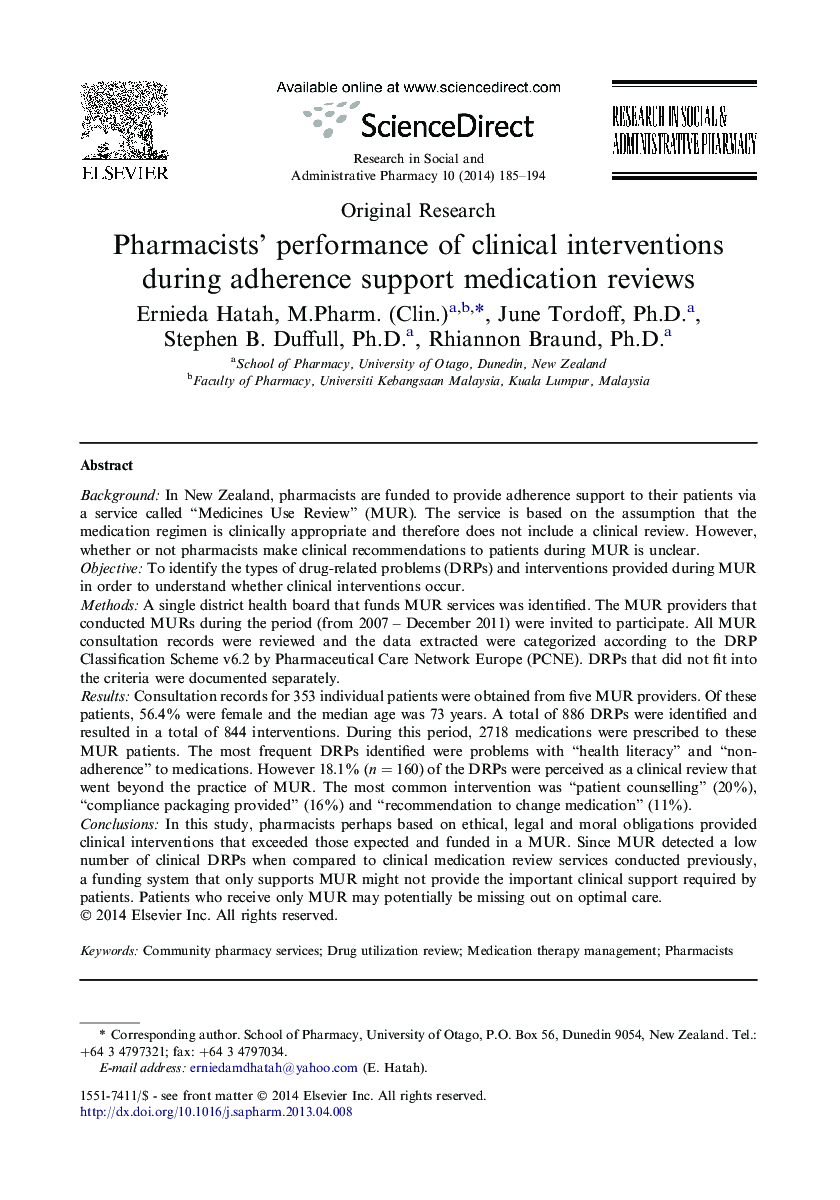| Article ID | Journal | Published Year | Pages | File Type |
|---|---|---|---|---|
| 2508716 | Research in Social and Administrative Pharmacy | 2014 | 10 Pages |
BackgroundIn New Zealand, pharmacists are funded to provide adherence support to their patients via a service called “Medicines Use Review” (MUR). The service is based on the assumption that the medication regimen is clinically appropriate and therefore does not include a clinical review. However, whether or not pharmacists make clinical recommendations to patients during MUR is unclear.ObjectiveTo identify the types of drug-related problems (DRPs) and interventions provided during MUR in order to understand whether clinical interventions occur.MethodsA single district health board that funds MUR services was identified. The MUR providers that conducted MURs during the period (from 2007 – December 2011) were invited to participate. All MUR consultation records were reviewed and the data extracted were categorized according to the DRP Classification Scheme v6.2 by Pharmaceutical Care Network Europe (PCNE). DRPs that did not fit into the criteria were documented separately.ResultsConsultation records for 353 individual patients were obtained from five MUR providers. Of these patients, 56.4% were female and the median age was 73 years. A total of 886 DRPs were identified and resulted in a total of 844 interventions. During this period, 2718 medications were prescribed to these MUR patients. The most frequent DRPs identified were problems with “health literacy” and “non-adherence” to medications. However 18.1% (n = 160) of the DRPs were perceived as a clinical review that went beyond the practice of MUR. The most common intervention was “patient counselling” (20%), “compliance packaging provided” (16%) and “recommendation to change medication” (11%).ConclusionsIn this study, pharmacists perhaps based on ethical, legal and moral obligations provided clinical interventions that exceeded those expected and funded in a MUR. Since MUR detected a low number of clinical DRPs when compared to clinical medication review services conducted previously, a funding system that only supports MUR might not provide the important clinical support required by patients. Patients who receive only MUR may potentially be missing out on optimal care.
